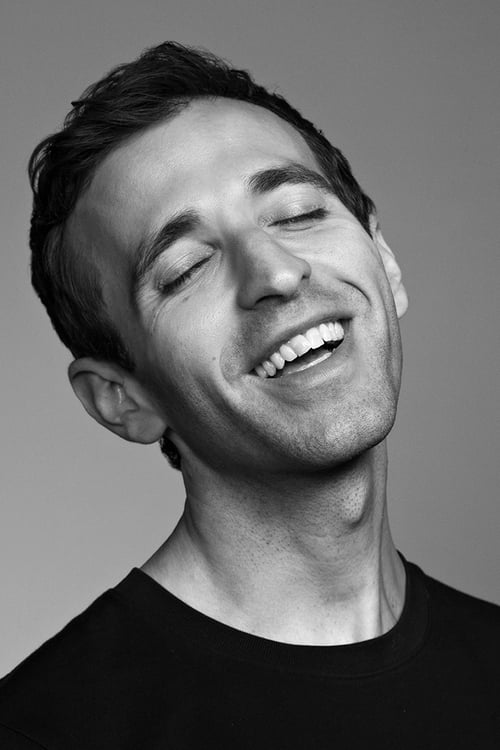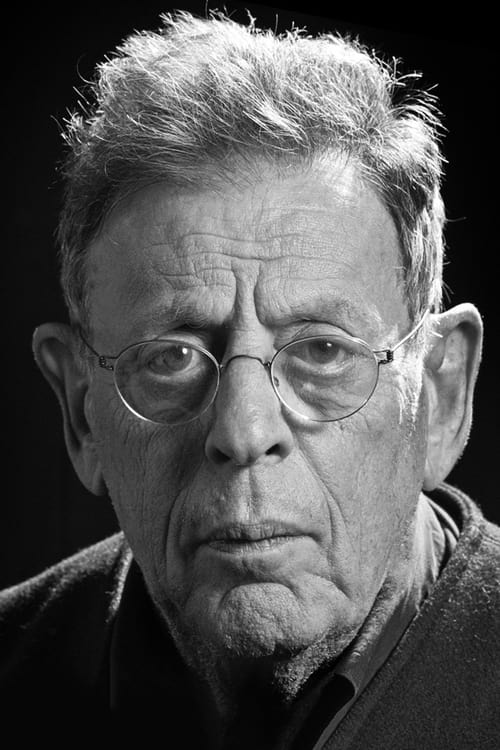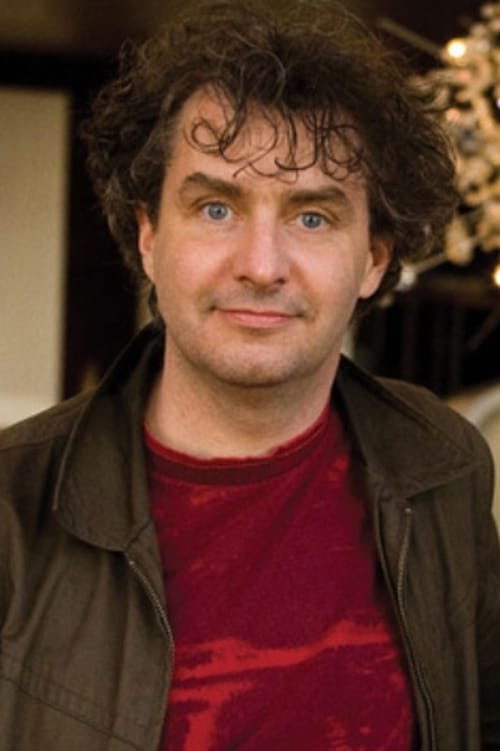Philip Glass: Akhnaten (2019)
Género : Música, Historia
Tiempo de ejecución : 2H 52M
Director : Phelim McDermott, Gary Halvorson
Sinopsis
Philip Glass’ opera “Akhnaten”, premiered in Stuttgart in 1984, forms the third part of the portrait opera trilogy about personalities who have influenced the course of human history. The conclusion of the trilogy deals with the ancient Egyptian pharaoh Akhenaten, who attempted to establish a kind of monotheistic cult around the god Aton during his reign in the 14th century BC, but failed due to the resistance of the priesthood. The production presented here was undoubtedly one of the very great successes of the 2019/20 season at New York’s Metropolitan Opera, due not only to the outstanding cast of singers (led by countertenor Anthony Roth Costanzo) but also to Phelim McDermott’s imaginative staging, which captivates with sometimes breathtaking imagery.

Philip Glass’ opera “Akhnaten”, premiered in Stuttgart in 1984, forms the third part of the portrait opera trilogy about personalities who have influenced the course of human history. The conclusion of the trilogy deals with the ancient Egyptian pharaoh Akhenaten, who attempted to establish a kind of monotheistic cult around the god Aton during his reign in the 14th century BC, but failed due to the resistance of the priesthood. The production presented here was undoubtedly one of the very great successes of the 2019/20 season at New York’s Metropolitan Opera, due not only to the outstanding cast of singers (led by countertenor Anthony Roth Costanzo) but also to Phelim McDermott’s imaginative staging, which captivates with sometimes breathtaking imagery.

Star soprano Anna Netrebko scored a triumph in Laurent Pelly’s acclaimed 2012 production, singing the title heroine for the first time at the Met. Manon’s story—from innocent country girl to celebrated courtesan to destitute prisoner—is one of the great tragic tales in literature and music, and this performance brings out all of its colors, as seen through Massenet’s masterful score, from the comedic beginning to the heart-wrenching finale. Piotr Bezcala is des Grieux, Manon’s lover, who decides to become a priest when she leaves him, but ultimately is reunited with her, only to lose her again. Paulo Szot sings Lescaut, and Fabio Luisi conducts the Met Orchestra and Chorus.

Mary quiere convertirse en cantante de ópera y empieza a recibir clases del maestro Guilio Monteverdi. Poco a poco ambos se irán enamorando. (FILMAFFINITY)

In its most ambitious effort yet to bring the joy and artistry of opera to audiences everywhere during the Met’s closure, the company presented an unprecedented virtual At-Home Gala, featuring more than 40 leading artists performing in a live stream from their homes all around the world.

Christine Goerke has wowed audiences as Turandot, the icy princess at the heart of Puccini’s grand final masterpiece. In this performance from the 2019–20 Live in HD season, Goerke stars alongside tenor Yusif Eyvazov (as Calàf) and soprano Eleonora Buratto (as Liù) in Franco Zeffirelli’s classic staging, which dazzles with its opulent visions of mythic China. Met Music Director Yannick Nézet-Séguin is on the podium, drawing a vivid array of musical colors from the incomparable Met Orchestra and Chorus.

The pain of unrequited love is portrayed unforgettably by two of today’s greatest stars. Renée Fleming is musically and dramatically radiant as the shy Tatiana, who falls in love with the worldly Onegin, played with devastating charisma by Dmitri Hvorostovsky. Their mesmerizing vocalism and chemistry explode in one of opera’s most heartbreaking final scenes. With Valery Gergiev on the podium conducting Tchaikovsky’s passionate score, this performance is one for the ages.

With its cast of hundreds, thrilling score, and sweeping tale of love and heroics in ancient Egypt, Verdi’s Aida has long been a fixture on the stages of every major opera house in the world. For the 2018 revival of Sonja Frisell’s monumental production of this grand masterpiece, the Met assembled a truly all-star cast. Soprano Anna Netrebko takes on the title role for the first time at the Met, and mezzo-soprano Anita Rachvelishvili plays her rival, the conniving princess Amneris. Tenor Aleksandrs Antonenko is Radamès, the warrior that both women love, and Quinn Kelsey lends his robust baritone to Aida’s father, the fallen king Amonasro. Maestro Nicola Luisotti is on the podium to conduct this epic performance, filmed as part of the Met’s series of Live in HD cinema transmissions.

David Alden’s elegant 2012 production moves Verdi’s thrilling drama to a timeless setting inspired by film noir. Marcelo Álvarez is Gustavo III, the Swedish king in love with Amelia (Sondra Radvanovsky), the wife of his best friend and counselor, Count Anckarström (Dmitri Hvorostovsky). When Anckarström joins a conspiracy to murder the king, tragedy ensues. Stephanie Blythe is the fortuneteller Madame Ulrica Arvidsson and Kathleen Kim sings the page Oscar. Met Principal Conductor Fabio Luisi is on the podium.

In his new production, Robert Carsen places the action at the end of the Habsburg Empire, underscoring the opera’s subtext of class and conflict against a rich backdrop of gilt and red damask
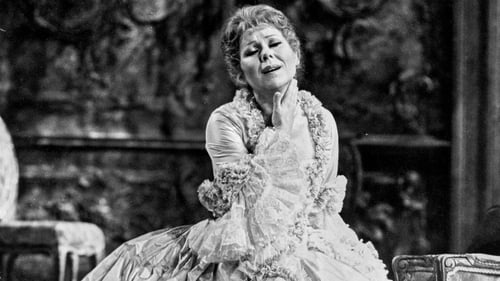
All the throbbing eroticism—and ultimate heartbreak—of Puccini’s youthful score is unleashed by James Levine and his top-flight cast. Plácido Domingo is Des Grieux, the handsome, headstrong young aristocrat who falls head over heels for the enticing, impetuous Manon Lescaut (Renata Scotto). Manon returns his love, but her obsession with luxury ruins them both. Gian Carlo Menotti’s opulent production, with sets and costumes by Desmond Heeley, superbly captures the colorful world of 18th century France.
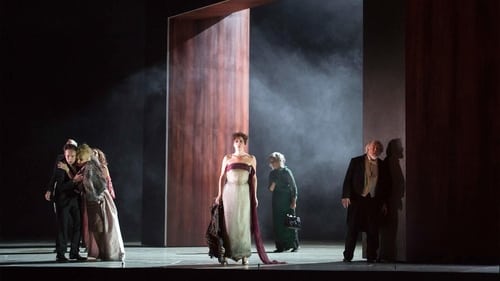
After the acclaimed Met premiere of Thomas Adès's "The Tempest" in 2012, the composer returned with another masterpiece, this time inspired by filmmaker Luis Buñuel's seminal surrealist classic "El Ángel Exterminador", during the 2017–18 season. As the opera opens, a group of elegant socialites gather for a lavish dinner party, but when it is time to leave for the night, no one is able to escape. Soon, their behavior becomes increasingly erratic and savage. The large ensemble cast tackles both the vocal and dramatic demands of Adès's opera with one riveting performance after another. Tom Cairns, who also penned the work's libretto, directs an engrossing and inventive production, using a towering wooden archway to trap the characters onstage. And Adès himself takes the podium to conduct the frenzied score, which features a host of unconventional instruments, including the eerie electronic ondes Martenot.
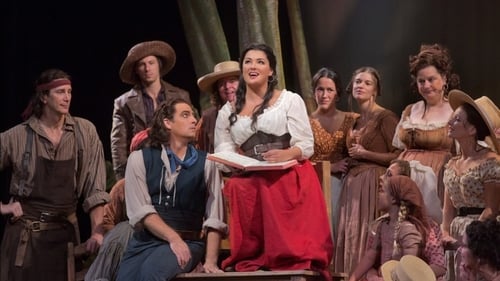
Anna Netrebko as the beautiful and wealthy Adina leads the cast in Barlett Sher’s production of Donizetti’s charming comedy, first seen on Opening Night of the Met’s 2012–13 season. Matthew Polenzani is Nemorino, the poor but good-hearted country boy who wins her love—with the help of the magic “elixir” sold by the quack Dulcamara, played by Ambrogio Maestri. Mariusz Kwiecien is the swaggering Sergeant Belcore and Maurizio Benini conducts.
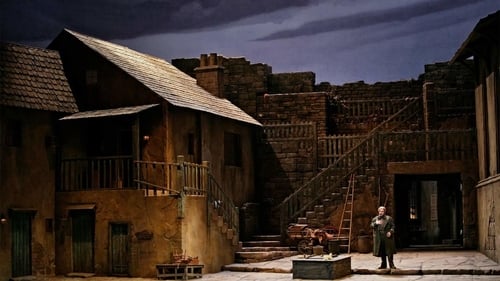
Premiered immediately before the enduring masterpieces Rigoletto, Il Trovatore, and La Traviata, Luisa Miller incorporates the youthful vitality that had made Verdi an international sensation while also looking forward to the dramaturgical discipline and sophistication of those later works. In this Live in HD performance, soprano Sonya Yoncheva takes on the riveting title role, capping off a season in which she starred in three cinema transmissions. As her father, Miller, the legendary Plácido Domingo adds another baritone role to his extensive repertoire. Tenor Piotr Beczała as Rodolfo, Alexander Vinogradov as Count Walter, and Dmitry Belosselskiy as Wurm round out the illustrious cast, and Bertrand de Billy conducts.
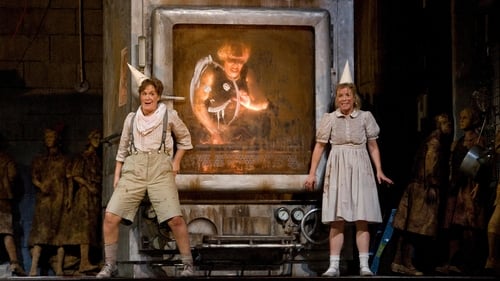
This deliciously dark take on the beloved Brothers Grimm fairy tale, appealing to audiences of all ages, was part of the Met’s popular English-language holiday series. Alice Coote and Christine Schäfer star as the famous siblings lost in the woods, who battle the ravenous Witch—a zany portrayal by tenor Philip Langridge—while the Met orchestra, under the baton of Vladimir Jurowski, glories in the rich, folk-inspired score.
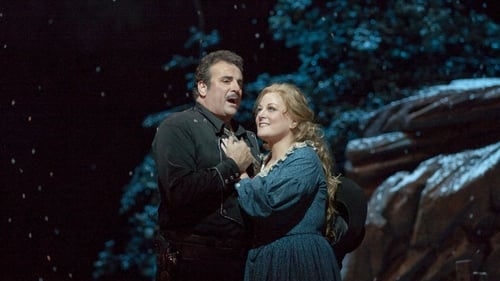
This excellent Deutsche Grammophon Blu-ray DVD was made during a Metropolitan Opera company performance of “La Fanciulla del West” in December 2010. The performance marked the centenary of the world premiere of the opera at the old Metropolitan Opera in 1910 with Caruso as Ramirrez or Dick Johnson, Emmy Destinn as Minnie, Pasquale Amato as Jack Rance and Arturo Toscanini as the conductor. Puccini helped in the production of the opera and was present in the audience on the night of the premiere.
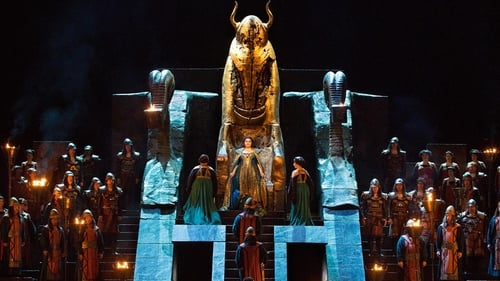
The legendary Plácido Domingo brings another new baritone role to the Met under the baton of his longtime collaborator James Levine. Liudmyla Monastyrska is Abigaille, the warrior woman determined to rule empires, and Jamie Barton is the heroic Fenena. Dmitri Belosselskiy is the stentorian voice of the oppressed Hebrew people.

Acclaimed artist William Kentridge directed and designed this visually dazzling Met premiere production of Shostakovich’s satirical opera, adapted from the classic short story by Nikolai Gogol. Baritone Paulo Szot leads the cast as Kovalyov, the hapless bureaucrat whose nose has mysteriously gone missing. Alexander Lewis and Andrey Popov co-star, and Pavel Smelkov conducts.
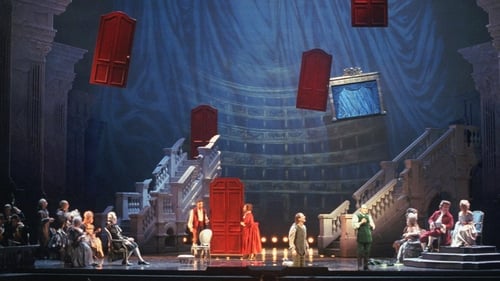
What happened to Figaro and his friends after the events told in Rossini’s and Mozart’s operas? One possible sequel is told in John Corigliano’s “grand opera buffa” The Ghosts of Versailles—an uproariously funny and deeply moving work inspired by Beaumarchais’s third Figaro play, La Mère Coupable, and commissioned by the Met to celebrate its 100th anniversary. This telecast captures its world premiere run, conducted by James Levine. Håkan Hagegård is Beaumarchais, Figaro’s creator, who is deeply in love with Marie Antoinette (Teresa Stratas in a heart-searing performance) and determined to rewrite history and save her from the guillotine. A young Renée Fleming, at the beginning of her international career, sings the unfaithful Rosina. Gino Quilico is the wily Figaro who tries to take matters in his own hands, and Marilyn Horne stops the show as the exotic entertainer Samira.

Tenor Javier Camarena and soprano Pretty Yende team up for a feast of bel canto vocal fireworks—including the show-stopping tenor aria “Ah! Mes amis,” with its nine high Cs. Alessandro Corbelli and Maurizio Muraro trade off as the comic Sergeant Sulpice, with mezzo-soprano Stephanie Blythe as the outlandish Marquise of Berkenfield. Enrique Mazzola conducts.
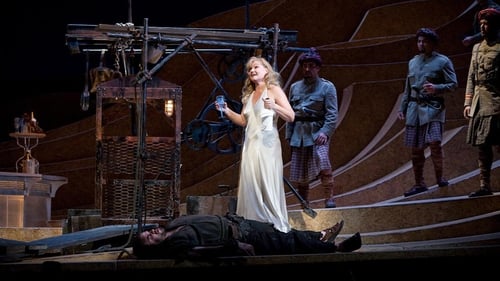
It is no wonder that Met audiences have gone wild over Karita Mattila’s sizzling Salome. Indisputably one of the greatest Salomes of our time, Mattila utterly incarnates Oscar Wilde’s petulant, willful, and lust-driven heroine. With Strauss’s groundbreaking music magnifying the degenerate atmosphere and building the erotic tension, this is one opera that is as shocking today as it was at its premiere in 1905.

